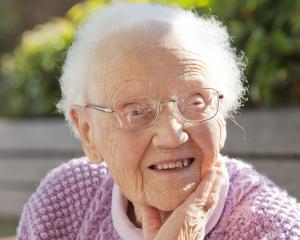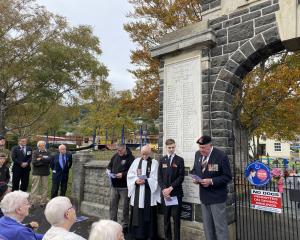The honour roll comprises banners which list the names of the more than 2500 Dunedin people who died in seven wars or other military conflicts during the 20th century.
The honour roll will be displayed for about a month, and participants at the Dawn Parade at Queens Gardens today will be able to see it at the museum's bus station foyer from 7am.
Tea, coffee and biscuits will be served to early visitors at the museum.
The roll of honour is an extension of an earlier one for World War 2 casualties prepared by the museum in 2005 as part of the exhibition ‘‘Dunedin's War: the wartime experiences of Dunedin people 1939-1945.''
The extended list now includes the other major armed conflicts of the 20th century that claimed Dunedin lives: the Boer War, World War 1, Korea and Vietnam.
The highest Dunedin toll by far was in World War 1, when 1545 Dunedin people were killed in military action, with 958 people killed in World War 2 and 24 casualties in the Boer War (1899-1902).
There was one Dunedin casualty in the Korean War (1950-1953), and one in the Vietnam War (1965-72).
The names and details were taken from various sources, most importantly the Commonwealth War Graves Commission website, organisers said.
The display was prepared by museum staff, including Settlers Museum designer Tim Cornelius and curator Sean Brosnahan.
Research for the project was undertaken by Theresa von Dadelszen (20) a BA (Hons.) and LLB student at the University of Otago.
She undertook the work during a six-week internship at the museum funded by the Otago Settlers Association, early this year after winning a prize as the best second-year history student at the university last year.
‘‘I'm so happy that I've had the opportunity. It's been a really amazing experience,'' she said.
The research had deepened her awareness of what Dunedin armed forces personnel and their families had gone through.
At the time, everyone in Dunedin had been affected by World War 1 and World War 2, with many families mourning the death of loved ones, she said.
There were no casualties in the Malayan Emergency (1949-60) or the Borneo Confrontation (1964-66).













